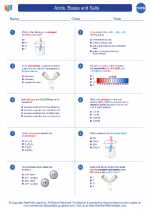Complementary Medicine
Complementary medicine, also known as alternative or integrative medicine, refers to a group of medical and healthcare practices that are used alongside conventional treatments. These practices are not considered mainstream, but they are used to complement and enhance the effectiveness of conventional medicine.
Types of Complementary Medicine
Complementary medicine encompasses a wide range of practices, including:
- Herbal medicine: The use of plants or plant extracts to treat various ailments.
- Acupuncture: The insertion of thin needles into specific points on the body to alleviate pain and promote healing.
- Chiropractic care: Manipulation of the spine and musculoskeletal system to treat disorders related to the nervous system and overall health.
- Homeopathy: A system of alternative medicine based on the concept that "like cures like," using highly diluted substances to stimulate the body's natural healing processes.
- Massage therapy: The manipulation of soft tissues to promote relaxation, relieve pain, and improve overall well-being.
- Traditional Chinese medicine: Including practices such as herbal medicine, acupuncture, and tai chi, aimed at restoring the body's balance and harmony.
Benefits of Complementary Medicine
Complementary medicine offers several potential benefits, including:
- Providing alternative treatment options for individuals who may not respond well to conventional therapies.
- Supporting holistic health and wellness by addressing physical, mental, and emotional aspects of an individual's well-being.
- Empowering individuals to take an active role in their healthcare and treatment decisions.
- Minimizing the side effects of certain conventional treatments through natural and non-invasive approaches.
- Addressing chronic pain and promoting relaxation and stress reduction.
Considerations and Precautions
While complementary medicine can offer benefits, it's important to consider the following precautions:
- Consult with a healthcare professional before integrating complementary therapies into your treatment plan, especially if you have pre-existing medical conditions or are taking medications.
- Be aware of potential interactions between complementary and conventional treatments to avoid adverse effects.
- Seek reputable and qualified practitioners who have appropriate training and credentials in their respective fields.
- Stay informed about the latest research and evidence supporting the efficacy of complementary practices.
- Remember that complementary medicine should not replace conventional medical treatments for serious or life-threatening conditions.
Study Guide
For a comprehensive understanding of complementary medicine, consider studying the following topics:
- Historical and cultural origins of various complementary medicine practices.
- Scientific research and evidence supporting the effectiveness of specific complementary therapies.
- Physiological and biochemical mechanisms underlying the effects of complementary medicine on the body.
- Ethical considerations and controversies surrounding the integration of complementary and conventional medicine.
- Case studies and real-life examples demonstrating the successful integration of complementary medicine into patient care.
By studying these topics, you can gain a deeper understanding of the principles, applications, and implications of complementary medicine in healthcare.
Feel free to reach out if you have any further questions or need additional information!
.◂Chemistry Worksheets and Study Guides High School. Acids, Bases and Salts

 Worksheet/Answer key
Worksheet/Answer key
 Worksheet/Answer key
Worksheet/Answer key
 Vocabulary/Answer key
Vocabulary/Answer key
